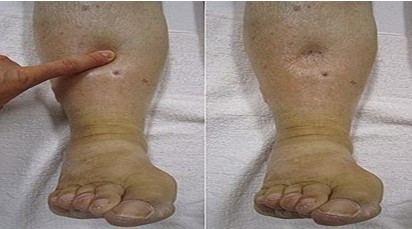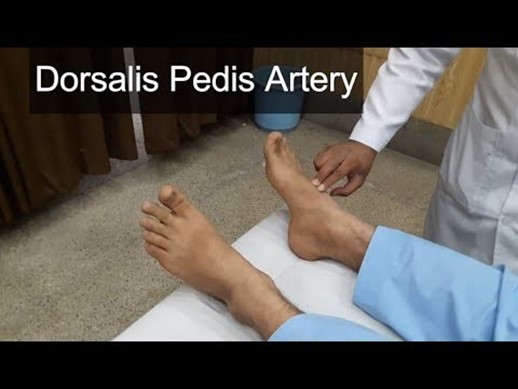A nurse is assessing a client who has right-sided heart failure.
Which of the following assessment findings should the nurse expect to find?
Poor skin turgor.
Pitting edema.
Oliguria.
S4 galloping heart sounds.
The Correct Answer is B
Pitting edema is a common and obvious symptom of right-sided heart failure.

This occurs when fluid retention causes swelling in the lower limbs and sometimes the abdomen.
Choice A is incorrect because poor skin turgor is not a common symptom of right-sided heart failure.
Choice C is incorrect because oliguria, or decreased urine output, is not a common symptom of right-sided heart failure.
Choice D is incorrect because S4 galloping heart sounds are not a common symptom of right-sided heart failure.
Nursing Test Bank
Naxlex Comprehensive Predictor Exams
Related Questions
Correct Answer is B
Explanation
“Furosemide.” The nurse should anticipate administering furosemide because the client’s symptoms of bounding peripheral pulses, hypertension, and distended jugular veins may indicate fluid overload.
Furosemide is a diuretic medication that can help reduce fluid overload by increasing urine output.
Choice A is incorrect because diphenhydramine is an antihistamine medication that is not used to treat fluid overload.
Choice C is incorrect because acetaminophen is a pain reliever and fever reducer that is not used to treat fluid overload.
Choice D is incorrect because pantoprazole is a proton pump inhibitor that is used to treat acid reflux and stomach ulcers, not fluid overload.
Correct Answer is D
Explanation
The nurse should palpate the dorsalis pedis pulse.

This is to assess for peripheral neurovascular dysfunction, which is a potential complication of a tibial fracture.
Choice A, wrapping sterile gauze on the sharp point of the pins, is not an answer because it is not mentioned in the search results as an intervention for a client with an external fixator for a tibial fracture.
Choice B, adjusting the clamps on the fixator frame, is not an answer because it is not mentioned in the search results as an intervention for a client with an external fixator for a tibial fracture.
Choice C, maintaining the affected extremity in a dependent position, is not an answer because it is not mentioned in the search results as an intervention for a client with an external fixator for a tibial fracture.
Whether you are a student looking to ace your exams or a practicing nurse seeking to enhance your expertise , our nursing education contents will empower you with the confidence and competence to make a difference in the lives of patients and become a respected leader in the healthcare field.
Visit Naxlex, invest in your future and unlock endless possibilities with our unparalleled nursing education contents today
Report Wrong Answer on the Current Question
Do you disagree with the answer? If yes, what is your expected answer? Explain.
Kindly be descriptive with the issue you are facing.
